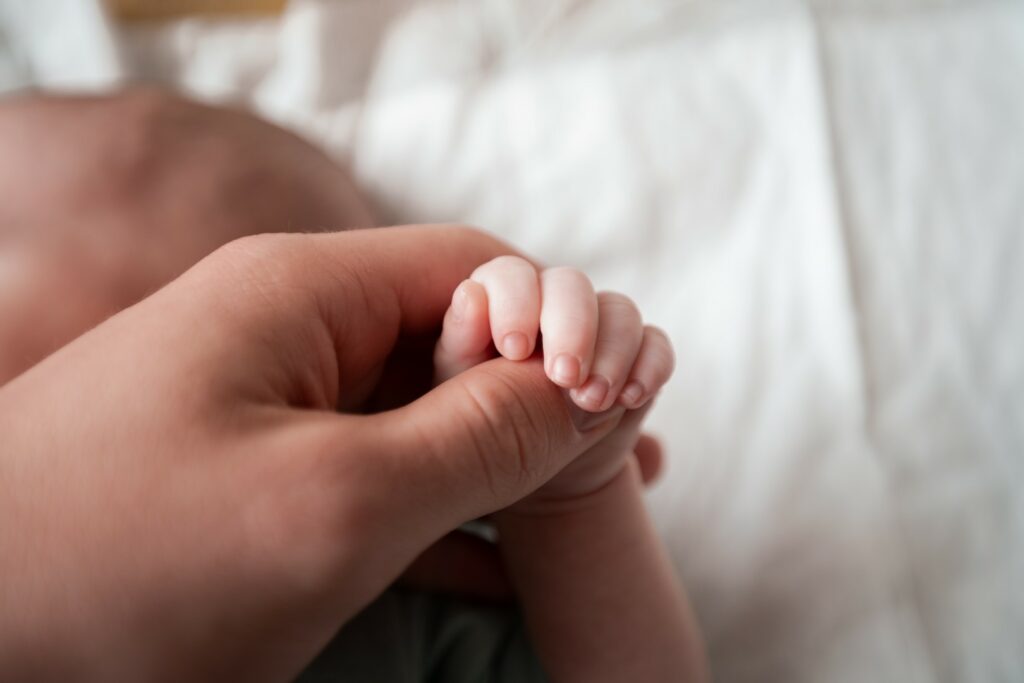The illusion of Christian unanimity against abortion
The illusion of Christian unanimity against abortion
Is anti-abortionism really an integral part of Christianity? And what does it mean that not all Christians are against abortion?
In June 2022, the US Supreme Court overturned its 1972 Roe v. Wade jurisprudence. From now on, the judges consider that the US Constitution does not protect the freedom to abort, leaving each state the right to restrict or secure abortion freedom.[1]
This event has global repercussions. As the US have sustainably stood for individual freedoms on the international scene, this decision could signal that abortion freedom is not a human right.[2] Europeans expect local anti-abortionist movements to be invigorated by the Supreme Court’s decision.
European Christians are all the more related to this event, since the overturning of Roe v. Wade was largely based on Christian arguments. Following the US Supreme Court’s decision, how do Europeans relate to the right to abortion ?
Is anti-abortionism essential to Christianity?
In the western collective consciousness, anti-abortionist arguments are assimilated into Christian beliefs.[3] With good reason: the US Supreme Court’s judges who voted to overturn Roe v. Wade are the heirs of the 40-year-old ‘pro-life’ Christian movement.[4]
The Catholic Church has opposed abortion as early as in the 4th century. However, the reason the Church censured abortion was that it was considered a mark of sexual sin. It was only in 1965 that the Church declared it to be a homicide. The ‘right to life’ argument that shaped the pro-life movement in the seventies is very recent.[5] It is nonetheless extremely significant in today’s Catholicism.[6]
Conversely, Evangelical Churches did not protest Roe v. Wade in 1973. At the time, they were not politically involved in the US. However, in the late seventies many baby boomers, who were having ‘born again’ experiences, left their traditional denominations. Evangelical churches grew bigger, and with them, the rejection of secularism. They pictured ‘legalised abortion’ as the “most powerful symbol of secular humanism.” Consequently, abortion freedom became the main target of Evangelical political activism.[7] [8]
Christians reclaim their theological diversity
The unification of Catholic and Evangelical churches in the US leads people to think that anti-abortionism is an integral part of Christianity. Still, unity of some is not unanimity of all. There are a variety of Christian denominations that develop conflicting theologies and that harbour people with different opinions.
Christian scholars have produced different interpretations of the Bible. A very prominent one claims that: “Christian marriage is ordained by God. The bearing and rearing of children within marriage between a man and a woman is likewise considered to be sacred.” When projecting this interpretation onto the sacred text, it could seem that the gospel itself is about anti-abortionism.
Nevertheless, this is only one of the many interpretations of biblical texts. Others rather insist that Jesus was Jewish and therefore thought life to begin with the first breath. Others also argue that Jesus always stood with marginalised women whenever religious men would prosecute them. Finally, many scholars explain that “fighting for bodily autonomy is actually biblical, an extension of the belief that we are made in the image of God, that our bodies are holy, and that the government should not intervene in that holiness.”[9]
Christians are not unanimously against abortion freedom
When it comes to personal beliefs and practices, Christians rarely see eye to eye. Many declare themselves Christian without living by the rules of their Church. In the US, for example, 68% of Catholics supported Roe v. Wade.[10] This is the same in Europe. In France, 90% of Catholics support the right to a safe abortion[11] It is safe to say that grassroots Christians are not at all as unanimously opposed to abortion as the religious institutions would have it.
More secular and more diverse than they seem,[12] Christians can dissent with each other. In the US, the inter-Christian conflict became very visible.[13] Those who oppose abortion accuse the others of perverting the gospel and propagating death. Those who support it accuse their anti-abortionist fellows of using their faith as a pretence for their political agenda. The same inter-Christian clash happens in Europe.
#NotAllChristians?
Thousands of kilometres away from the Supreme Court epicentre, European Christians are indeed shaken. In France, for example, Christian conservatives have soberly acknowledged “the undeniable victory of those who contested Roe v. Wade, as it is not mentioned in the American Constitution.”[14] The majority of articles that were then published in the Christian media rather focused on preventing abortion freedom from being added to the French Constitution.[15] [16] [17]
On the contrary, Christian liberals have not yet expressed a public reaction to the overturning of Roe v. Wade. In private, some of them interpret this event as the result of the majority’s silence – as the majority of Christians do emancipate themselves from their Church’s requirements when it comes to their own reproductive health.[18]
Admittedly, the French State is secular. Therefore, no religious requirement rules. This matter of fact serves the conservatives’ reluctance to legally secure abortion freedom, as well as the liberals’ timidity in defending bodily autonomy. In this context, can claiming “not all Christians” be enough to support those whose lives are at stake?
Want to read more about similar topics? Go to the EARS Dashboard.
Sources
[1] Special Edition: Roe v. Wade Is Overturned – The New York Times
[2] Bracing for global impact as Roe v. Wade abortion decision overturned | Devex
[3] Religious beliefs give strength to the anti-abortion movement – but not all religions agree
[4] How the Christian right took over the judiciary and changed America | Abortion | The Guardian
[5] Abortion and Catholic thought. The little-known history
[6] Respect Life: Pope Francis’ 8 strongest statements against abortion | Catholic News Agency
[7] How America’s Evangelicals Turned Themselves Into an Anti-Abortion Machine
[8] Racism also played a role in the commitment of American Evangelical Churches against abortion: Evangelicals didn’t always play such a big role in the fight to limit abortion access
[9] Christianity Isn’t Anti-Abortion. It’s Pro-Choice – Rolling Stone
[10] 8 key findings about Catholics and abortion | Pew Research Center
[11] 90% des catholiques français favorables au droit à l’IVG
[12] Statistiques sur la pratique religieuse en France — Géoconfluences
[13] Reactions to the End of Roe Reveal Divisions Between Religious Leaders
[14] Avortement aux États-Unis : une décision qui interpelle
[15] Du malaise à la cohérence intégrale
[16] Faut-il inscrire le droit à l’avortement dans la Constitution française ?
[17] Avortement aux États-Unis : une décision qui interpelle
[18] https://www.instagram.com/stories/highlights/18025102672371007/






